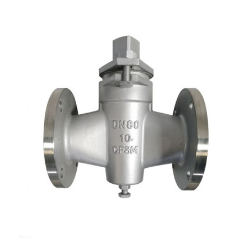female needle valve
Understanding the Female Needle Valve Applications and Advantages
In the world of fluid control and instrumentation, the female needle valve is a critical component widely used across various industries. This specialized valve is designed to control the flow of liquids and gases with precision, making it indispensable for applications that require accurate flow regulation. In this article, we will explore the design, functionality, applications, and advantages of female needle valves.
Design and Functionality
A female needle valve is characterized by its unique design, which features a slender movable plunger or needle that fits into a conical-seat configuration. This design allows for fine adjustments in flow control, enabling operators to regulate the flow rate precisely. The term female refers to the valve's threaded connection, which is designed to accept male fittings, facilitating easy integration into existing piping systems.
The female needle valve operates by turning the handle or knob at the top of the valve, which adjusts the position of the needle inside the valve body. As the needle moves up or down, it either opens or narrows the flow path, allowing users to control the flow rate with exceptional accuracy.
Applications
Female needle valves are commonly used in various applications, including
1. Oil and Gas Industry These valves are frequently employed in refineries and extraction sites for flow regulation in pipelines. The ability to control fluid flow under high-pressure conditions makes them ideal for this sector.
2. Chemical Processing In chemical manufacturing, the precise regulation of chemical mixtures is crucial. Female needle valves help ensure that the right proportions of different chemicals are mixed, which is essential for product quality and safety.
3. Water Supply Systems Water treatment facilities use female needle valves to monitor and control water flow, ensuring that water is treated properly before it reaches consumers.
4. Pharmaceuticals In the pharmaceutical industry, maintaining the integrity of drug formulations is vital. Needle valves are used to control the flow of active ingredients and solvents, ensuring that dosages are accurate.
female needle valve

Advantages
The use of female needle valves comes with several advantages
1. Precision Control The design of the needle valve allows for fine-tuning of flow rates, which is crucial in applications where even slight variations can have significant consequences.
2. Durability Made from high-quality materials such as stainless steel, brass, or plastic, female needle valves are built to withstand harsh environments, including extreme temperatures and corrosive substances.
3. Compact Design Female needle valves occupy less space than other flow control devices, which makes them suitable for installations where space is a constraint.
4. Ease of Maintenance These valves can be easily serviced or replaced, making them a practical choice for facilities looking to minimize downtime.
5. Versatility With a range of sizes, materials, and configurations available, female needle valves can be tailored to fit a variety of applications across different industries.
Conclusion
The female needle valve is a remarkable and essential component in the fluid control industry. Its precision, durability, and versatility make it suitable for numerous applications, from oil and gas to pharmaceuticals. As industries continue to evolve and seek greater efficiency and accuracy in fluid management, the importance of female needle valves will undoubtedly grow. Understanding their design, functionality, and benefits can significantly enhance operational efficiency and safety, making them an invaluable asset in various technical and industrial settings. Whether you are involved in manufacturing, processing, or distribution, incorporating female needle valves into your systems can lead to improved control and performance.
-
The Key to Fluid Control: Exploring the Advantages of Ball Valves in Industrial SystemsNewsJul.09,2025
-
The Versatile World of 1, 2, and 3 Piece Ball ValvesNewsJul.09,2025
-
Stainless Steel Ball Valves: The Ideal Choice for Efficient Flow ControlNewsJul.09,2025
-
Optimizing Fluid Control with Ball Float ValvesNewsJul.09,2025
-
Manual Gate Valves: Essential for Control and EfficiencyNewsJul.09,2025
-
Everything You Need to Know About Butterfly ValvesNewsJul.09,2025
-
The Versatility of Wafer Type Butterfly ValvesNewsJul.08,2025




